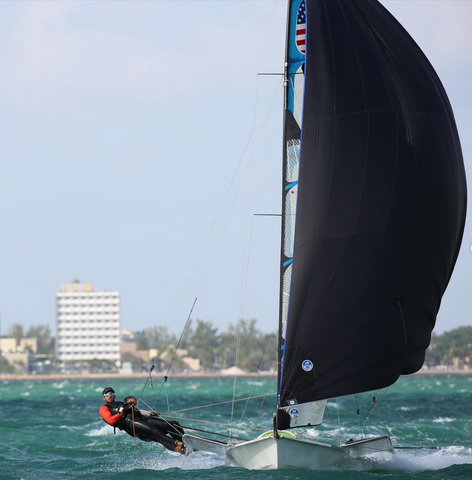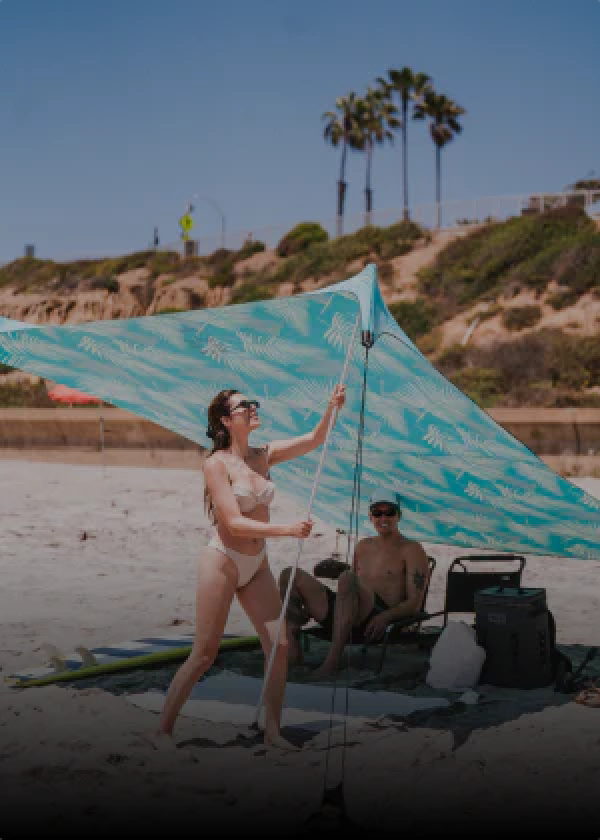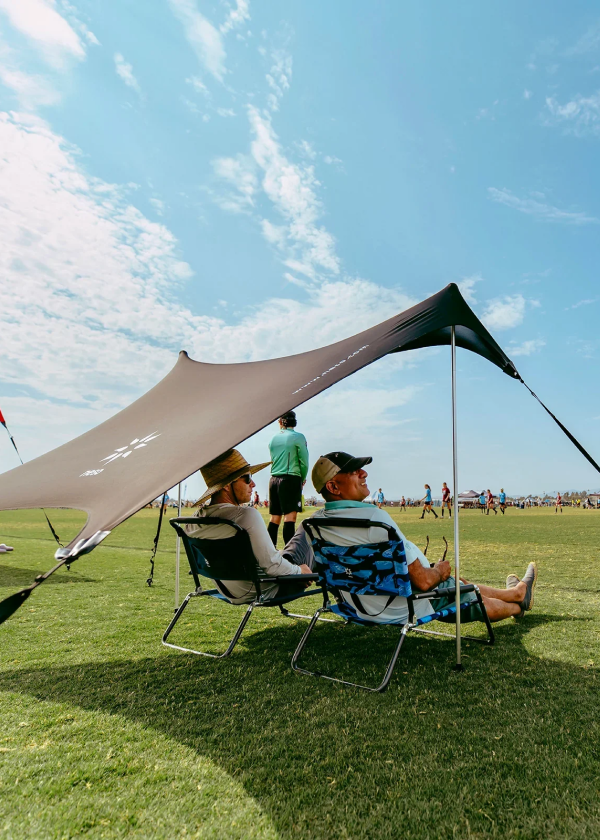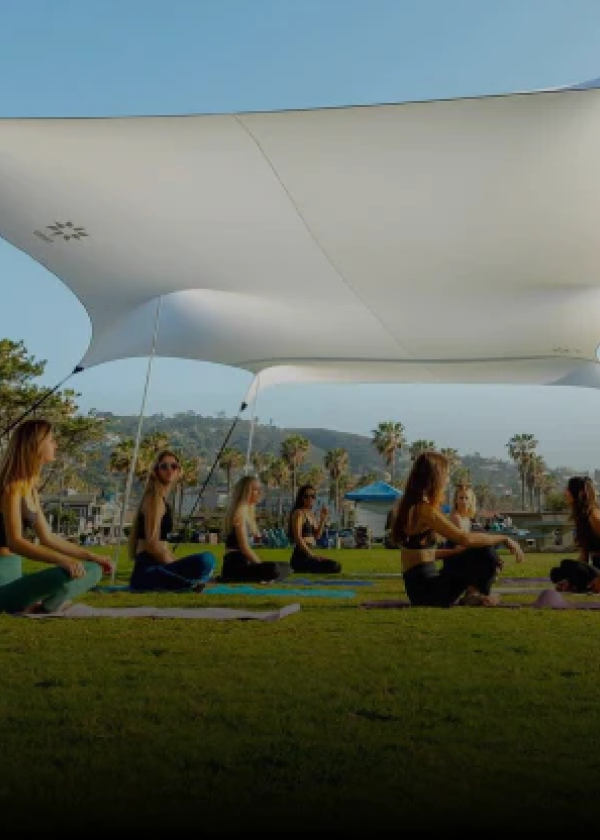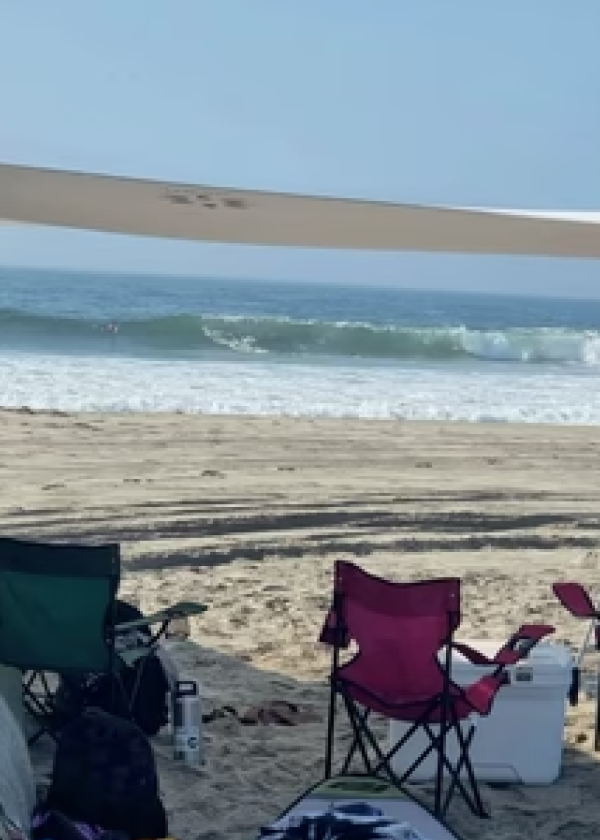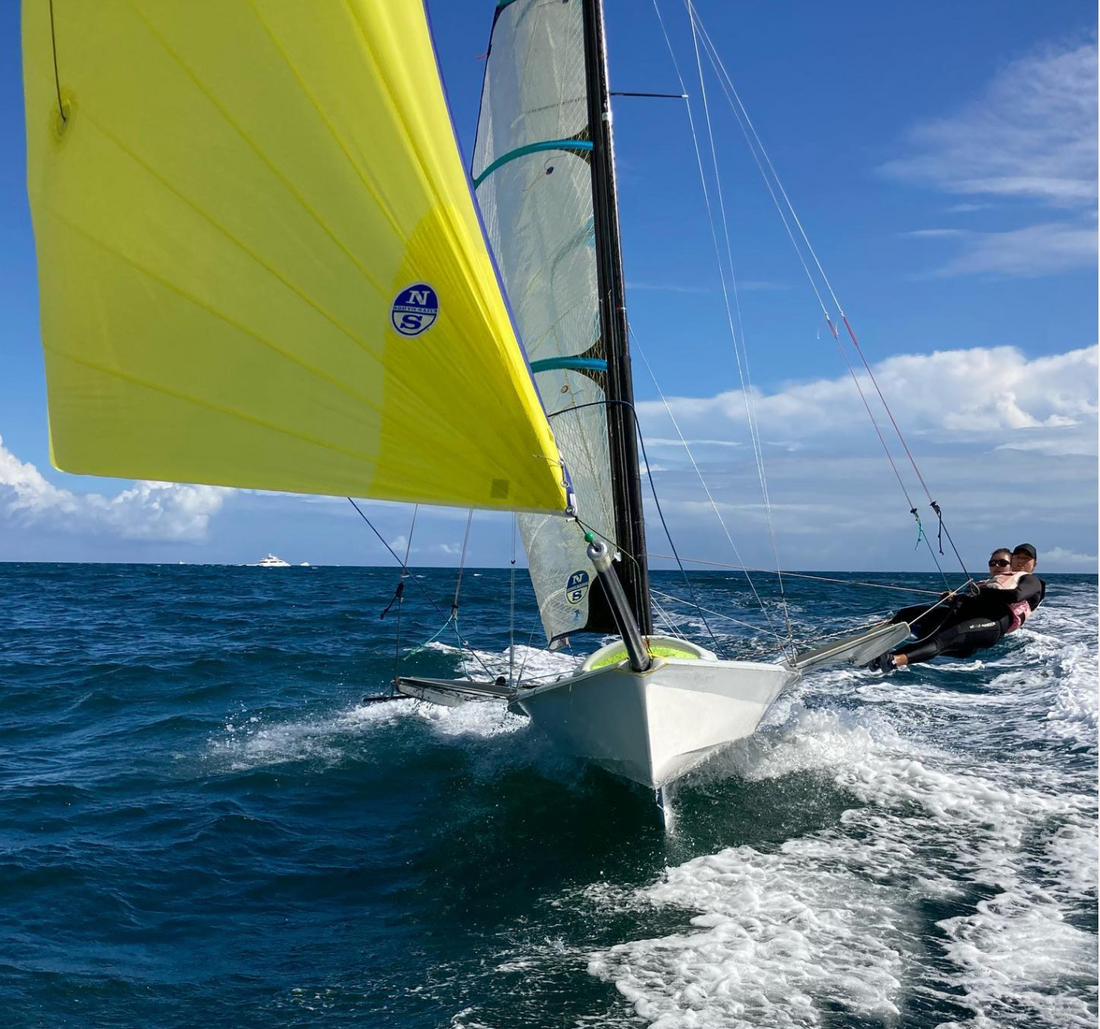Written and interviewed by Kelsie Pearson
From 2015-2019, Willie was the youngest member of the US Sailing Team Olympic Coaching staff. Willie McBride has packed a lot into his coaching career so far, specializing in quantitative team evaluation and asymmetric tactics. Willie embraces his millennial background, incorporating technology to break down learning, and quantify improvement.
I was able to ask Willie a few questions about his involvement with kite racing and how it evolved to become one of the racing disciplines within the sport of "sailing" at the 2024 Olympics.

Kelsie: What got you interested in kite racing?
Willie: I was born and raised on a boat in the Santa Barbara harbor where my dad was a commercial fisherman, so sailing is kind of in my blood! After I finished coaching at the 2016 Olympics in Rio, and Formula Kite started being considered to get a place at the Olympic Games, it piqued my interest! Fast forward to 2020, when kite racing got voted in as one of the racing disciplines within the sport of "sailing" at the 2024 Olympics, and I couldn't wait to get more involved. The racing is so fast paced, and so high performance. The racers out there are hitting speeds around 40 miles per hour on a regular basis, which if you've ever done any wakeboarding or water skiing, you know is pretty fast when impact is only one tiny mistake away!
I think it is so admirable to have the opportunity to coach Olympic athletes. With the great privilege to coach Olympic athletes, I can only imagine it comes with the pressure of success but what a cool experience.
Kelsie:
What are the steps to qualify it as an olympic sport?
Willie: Kiting first got voted in to the Olympics as a sub-category of "sailing" in 2020. Now that the sport is in, we head down a path where each country will need to qualify for a berth at the 2024 Olympics, and then each athlete will have to qualify to represent their country. That first step - earning the country berth - will happen at the World Championships in the next couple of years. There will be opportunities along the way to prove that your country is a top 20 contender, by finishing in the top few places at these World Championships each year, and once that happens, the US Olympic trials will officially be ON! Each country is only allowed to qualify for one slot at the Olympics in each sailing category, so unlike swimming or gymnastics where you can have Americans bring home Gold, Silver and Bronze, our US Olympic trials have to select a single US representative to go compete against all of the other international competitors. This makes our Olympic trials extremely intense!

Kelsie: Tell us about your coaching philosophy
Willie: For me, sailing, kiting, and sports in general are an amazing analogy for life. There are highs and lows - fast progress and painful plateaus. Sometimes you celebrate a win at the Olympics, and other times you band together with your team to regroup after losing the Olympic trials. You can do all the right things and still lose on a bad umpire call, or all the wrong things, and sneak through with a lucky wind shift... In the long run, what matters is the process that you build to ensure that you keep making good decisions, and keep improving each day, hopefully a little bit more than you did the day before. I try to make sure that my teams appreciate every sunset that we get to spend on the water!
As an athlete myself I can relate to the highs and lows of racing. Celebrating with your coach and teammates is such a gift and when you don't have the race you planned the only direction to move is forward.

Kelsie: Where are your favorite places to train and why?
Willie: Sailing is a much bigger sport in Europe than in the United States, so traditionally we've spent a lot of time on the water in Northern European venues. Awesome venues like Mexico, Mauritius, Sardignia, and Southern France are common on the circuit. Spending time in Los Barilles and La Ventana has been amazing, and I would definitely put those down as two of my favorite locations to train at this point! Coaching the kites is much different than sailing because the kiters are too fast for me to keep up with in a regular motor boat, so I've taken a page out of the surf-coach playbook, by setting up shop on the beach with my drones and cameras. No better place for that than Mexico! I set up my Neso tent and chair, lay out the beach towel, dial my VHF radio to the channel that the kiters are on, and unpack the camera bag for an afternoon of coaching. It takes a lot of focus to pick up on little details of technique and tactics from the beach, but we come away with great footage to review. And who could complain about working from a tent on the beach!
I enjoyed getting to know Coach Willie and I admire the hard work that gets put into coaching an Olympic team. We must remember that coaches are the ones behind the scenes that make athletes so successfully- mentally and physically.
If you want to read more about Willie McBride and his coaching click
here.




